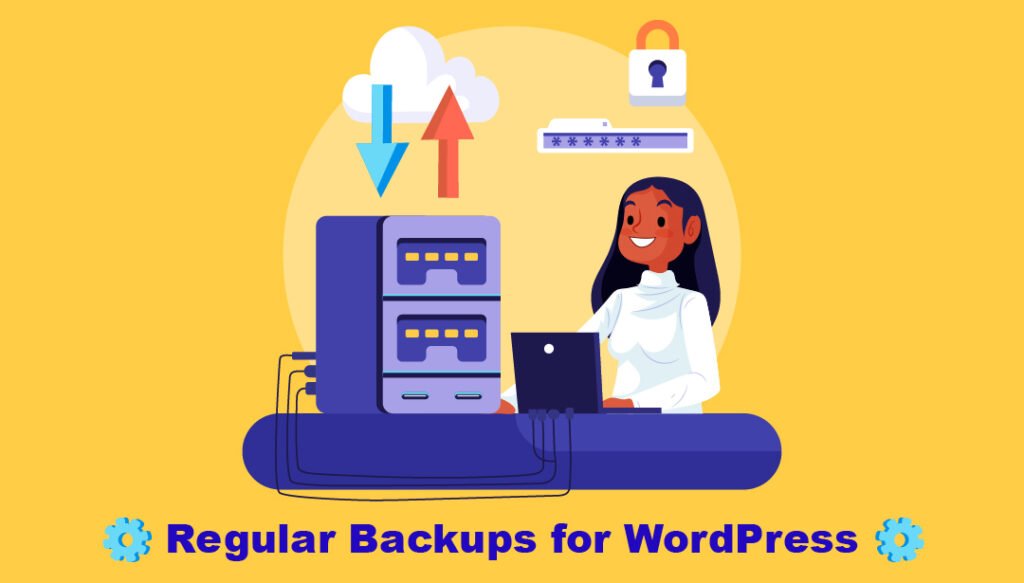
WordPress is a popular platform for websites. It is easy to use and flexible. But, it can be a target for hackers. This is why regular backups are important for WordPress security.
What is a Backup?
A backup is a copy of your website. It includes all files and data. If something goes wrong, you can restore your website from the backup.
Why Are Backups Important?
Backups are like a safety net. They protect your website from data loss. Here are some reasons why backups are important:
- Protection Against Hackers: Hackers can attack your website. They can delete or change your files. With a backup, you can restore your website quickly.
- Accidental Deletion: Sometimes, you might delete important files by mistake. A backup helps you recover those files.
- Updates Gone Wrong: Updating WordPress or plugins can sometimes cause problems. If an update breaks your website, you can use a backup to fix it.
- Server Crashes: Servers can crash and lose data. A backup ensures you do not lose your website.
How Often Should You Backup?
Regular backups are crucial. The frequency depends on how often you update your website. Here are some general guidelines:
| Website Update Frequency | Backup Frequency |
|---|---|
| Daily Updates | Daily Backups |
| Weekly Updates | Weekly Backups |
| Monthly Updates | Monthly Backups |
Methods to Backup Your WordPress Site
You can backup your WordPress site in different ways. Here are some methods:
Manual Backups
Manual backups involve downloading your files and database. This method takes time and effort. Here are the steps:
- Use an FTP client to download your WordPress files.
- Export your database using phpMyAdmin.
- Store the files and database on your computer.
Automated Backups
Automated backups use plugins. These plugins make backups easy. They can schedule regular backups. Here are some popular plugins:
- UpdraftPlus: This plugin is user-friendly. It can backup to cloud storage like Google Drive or Dropbox.
- BackupBuddy: This plugin offers complete backups. It also has migration and restoration features.
- VaultPress: This plugin is from the creators of WordPress. It offers real-time backups.
Where to Store Your Backups?
Storing backups in a safe place is important. Here are some options:
Cloud Storage
Cloud storage is convenient and secure. You can use services like Google Drive, Dropbox, or Amazon S3.
External Hard Drives
External hard drives are a good option. They keep your backups offline and safe from online threats.
Web Hosting Backup Services
Some web hosts offer backup services. These services can be automatic and reliable.
How to Restore a Backup?
Restoring a backup is crucial if something goes wrong. Here are the steps:
Using A Plugin
If you use a backup plugin, restoration is easy. Most plugins have a restore option. Here are the general steps:
- Go to the plugin’s restore section.
- Select the backup you want to restore.
- Follow the plugin’s instructions to complete the restoration.
Manual Restoration
Manual restoration involves uploading files and importing the database. Here are the steps:
- Use an FTP client to upload your WordPress files.
- Use phpMyAdmin to import your database.
- Update your wp-config.php file with the correct database information.
Best Practices for WordPress Backups
Following best practices ensures your backups are effective. Here are some tips:
- Test Your Backups: Regularly test your backups to ensure they work.
- Use Multiple Backup Locations: Store backups in multiple locations for added security.
- Automate Backups: Use plugins to automate backups and reduce human error.
- Keep Backup Logs: Maintain logs of your backups for reference.
Frequently Asked Questions
Why Are Regular Backups Important For WordPress?
Regular backups protect your site from data loss. They ensure quick recovery after hacks, crashes, or updates.
How Often Should I Backup My WordPress Site?
Backup your WordPress site daily or weekly. The frequency depends on how often you update content or make changes.
Can Backups Improve WordPress Security?
Yes, backups enhance security. They provide a safety net, allowing you to restore your site after security breaches.
Conclusion
Regular backups are vital for WordPress security. They protect your website from data loss and attacks. Use plugins to automate the process. Store your backups in safe places. Follow best practices to ensure your backups are effective. Keep your WordPress site secure and enjoy peace of mind.
